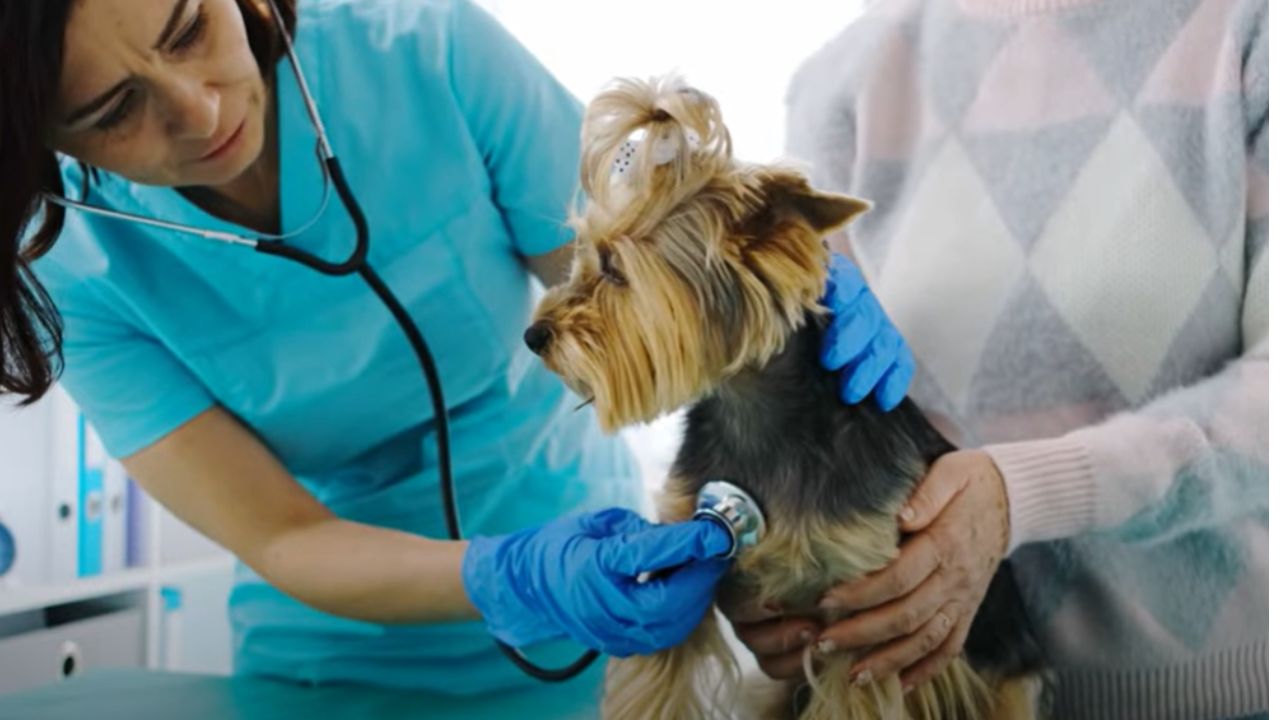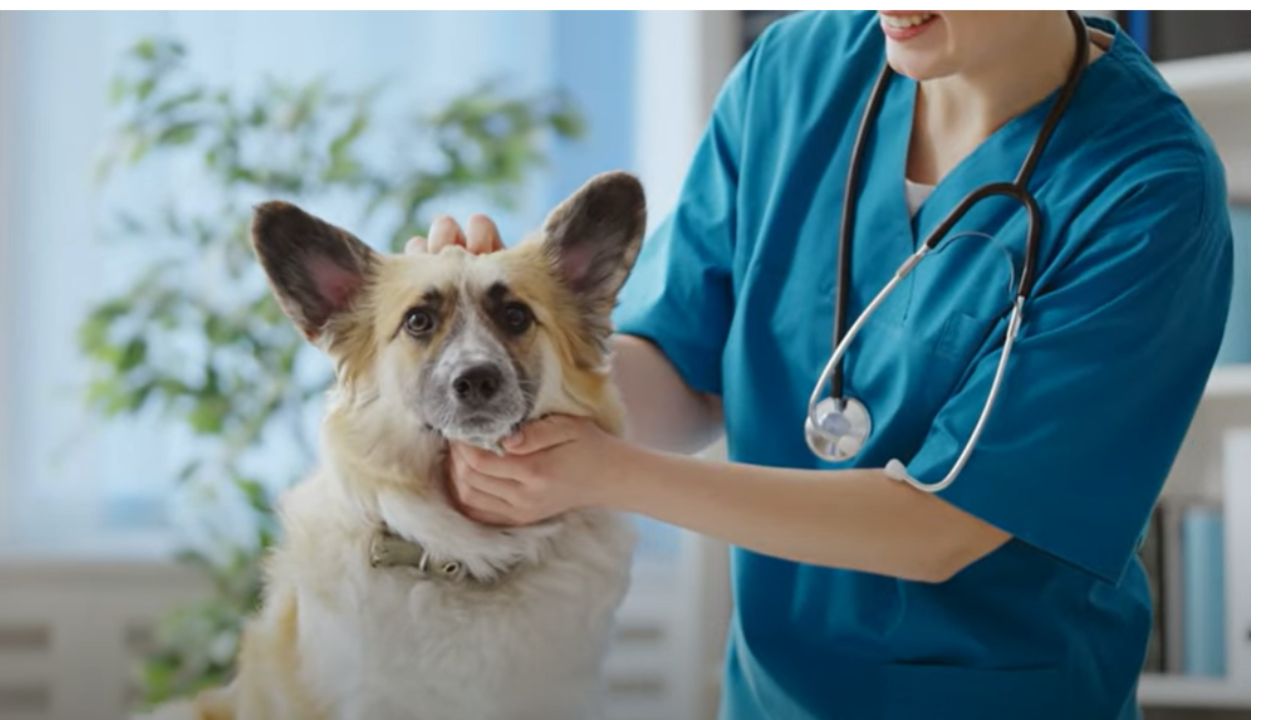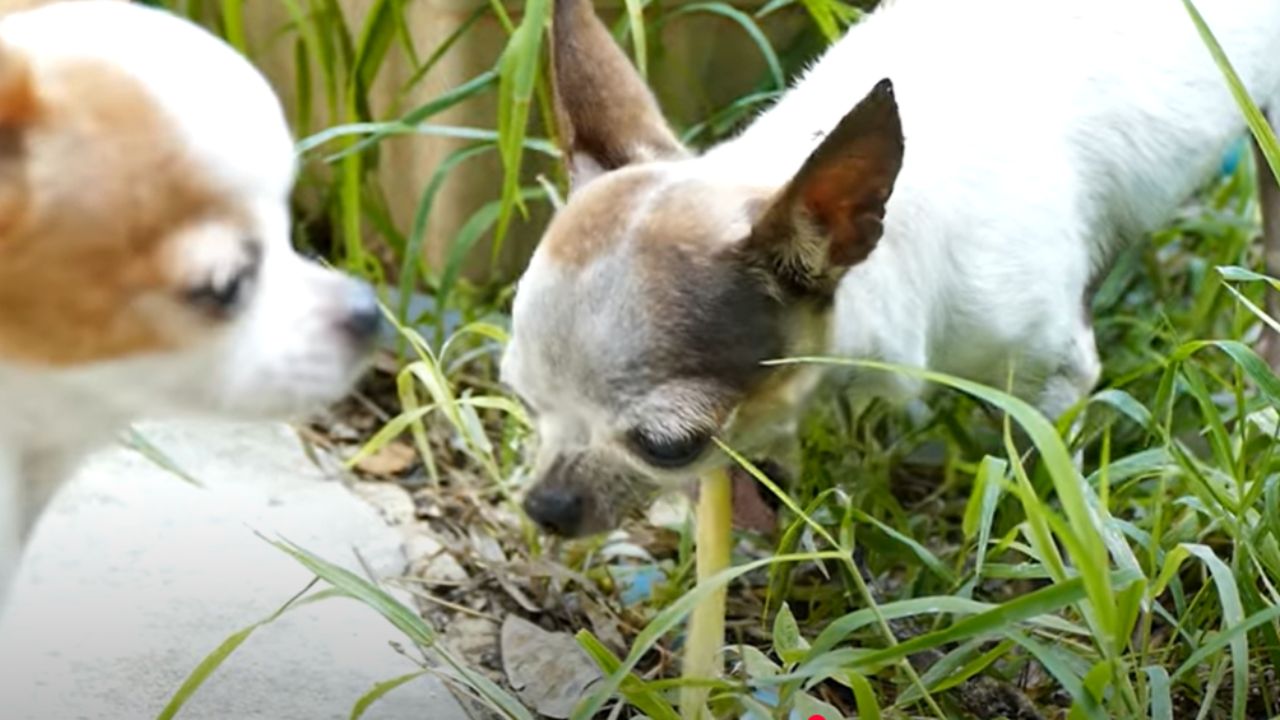Why is My Dog Throwing Up Undigested Food? Best Guide

Why is My Dog Throwing Up Undigested Food?
Dogs throw up undigested food for different reasons. It might be something simple like eating too fast, chewing too little, or feeling anxious. But sometimes, it can be a sign of a deeper health issue that needs a vet’s attention.
Seeing your dog vomit can be upsetting. You may wonder why they can’t keep their food down. Understanding the possible causes can help you know whether it’s just a one-time thing or something more serious.
Let’s look at the common reasons behind this problem and what you can do to help your dog stay happy and healthy.
Common Causes
Watching your dog throw up undigested food can be worrying. There are many reasons why this might happen. It is important to understand these causes to help your dog feel better. The most common causes include dietary issues and eating habits.
Dietary Issues
Dietary problems can cause your dog to throw up. Here are a few reasons related to diet:
- Food allergies: Some dogs may be allergic to certain foods. This can lead to vomiting.
- Inappropriate diet: Feeding your dog the wrong type of food can cause digestive problems.
- Sudden diet changes: Changing your dog’s diet too quickly can upset their stomach.
It is vital to choose the right food for your dog. Consult your vet for the best dietary options. Avoid sudden changes in their diet. Introduce new foods gradually.
Also, make sure your dog is not eating spoiled food. Check the expiration date on their food. Store it properly to keep it fresh.
Eating Habits
Your dog’s eating habits can also cause vomiting. These habits include:
- Eating too fast: Dogs that eat quickly might not chew their food well. This can cause them to throw up.
- Overeating: Eating too much food at once can lead to vomiting.
- Eating non-food items: Some dogs eat things they should not. This can cause digestive problems.
To help your dog eat slower, try using a slow feeder bowl. This can prevent them from eating too fast. Monitor their food intake to avoid overeating.
Keep an eye on your dog to ensure they do not eat non-food items. This includes small objects, plants, or even trash.
If your dog’s eating habits are causing problems, consult your vet. They can provide advice on how to manage these issues.
Health Conditions
It’s worrying when your dog throws up undigested food. It can be a sign of various health conditions. Understanding these can help you take the best care of your furry friend. It’s important to identify the cause and seek help from a vet. This article focuses on health conditions, including gastrointestinal disorders and infections, that could lead to this issue.

Gastrointestinal Disorders
Gastrointestinal disorders are common in dogs. They often lead to vomiting. Here are some key points:
- Gastritis: This is inflammation of the stomach lining. It can cause your dog to throw up undigested food.
- Bowel Obstruction: A blockage in the intestines can stop food from passing through. This results in vomiting.
- Gastroenteritis: This involves inflammation of the stomach and intestines. It leads to vomiting and diarrhea.
Understanding these disorders is crucial. It helps in identifying the problem early. Here is a simple table that shows symptoms and causes:
| Disorder | Symptoms | Causes |
|---|---|---|
| Gastritis | Vomiting, loss of appetite | Infections, medications |
| Bowel Obstruction | Vomiting, pain | Foreign objects, tumors |
| Gastroenteritis | Vomiting, diarrhea | Viruses, bacteria |
Infections
Infections can also cause your dog to vomit undigested food. Some common infections include:
- Parvovirus: This is a severe viral infection. It causes vomiting and diarrhea.
- Leptospirosis: A bacterial infection. It affects the liver and kidneys. Symptoms include vomiting and fever.
- Salmonella: Another bacterial infection. It causes gastrointestinal upset. Vomiting is a major symptom.
These infections are serious. They require immediate veterinary attention. Below is a table summarizing the infections and their effects:
| Infection | Symptoms | Treatment |
|---|---|---|
| Parvovirus | Vomiting, diarrhea, lethargy | Supportive care, fluids |
| Leptospirosis | Vomiting, fever, jaundice | Antibiotics, fluids |
| Salmonella | Vomiting, diarrhea, fever | Antibiotics, supportive care |
Food Intolerance
Dogs can throw up for many reasons. One common cause is food intolerance. When a dog vomits undigested food, it’s often because something in their diet isn’t agreeing with them. This can be due to allergies or sensitivity to specific ingredients. Understanding the cause can help in finding the right solution for your pet.
Allergies
Dogs can be allergic to various foods. These allergies can cause your dog to vomit. Here are some common symptoms:
- Itchy skin
- Ear infections
- Chronic diarrhea
- Vomiting undigested food
It’s important to recognize these symptoms early. Allergies can develop to foods your dog has eaten for years without problems. Common allergens include:
| Allergen | Examples |
|---|---|
| Proteins | Beef, chicken, lamb |
| Grains | Wheat, corn, soy |
Consult your vet if you suspect an allergy. They may recommend an elimination diet. This involves removing suspected allergens from your dog’s diet. Then, reintroduce them one at a time to see which one causes problems.
Sensitivity To Ingredients
Sensitivity to certain ingredients can also cause vomiting. Unlike allergies, sensitivities don’t involve the immune system. They are often due to the dog’s inability to digest certain foods. Symptoms of food sensitivity include:
- Gas
- Bloating
- Diarrhea
- Vomiting undigested food
Common culprits include:
| Ingredient | Examples |
|---|---|
| Dairy | Milk, cheese, yogurt |
| Fats | Greasy foods, fatty meats |
If your dog has a sensitivity, switch to a simpler diet. Choose foods with limited ingredients. This can make it easier to identify the problem. Again, your vet can provide guidance on the best diet for your dog.

Behavioral Factors
It can be worrying when a dog throws up undigested food. There are many reasons why this happens, and one common cause is behavioral factors. These factors can include anxiety and stress eating. Understanding these can help in managing your dog’s health better.
Anxiety
Dogs, like humans, can suffer from anxiety. This can lead to throwing up undigested food. Various situations can trigger anxiety in dogs:
- Separation from their owners
- Loud noises like thunderstorms or fireworks
- Changes in their environment
- Unfamiliar people or animals
When a dog is anxious, their digestive system can be affected. The anxiety can cause their stomach to contract and expel food before it is fully digested. This is why you might see undigested food in their vomit.
Observing your dog’s behavior can help you identify if anxiety is the cause. Signs of anxiety include:
- Restlessness or pacing
- Excessive barking or whining
- Shivering or trembling
- Hiding or seeking comfort from you
If you notice these signs, it might be helpful to consult a veterinarian or a pet behaviorist. They can provide strategies to help manage your dog’s anxiety and reduce vomiting.
Stress Eating
Dogs can also throw up undigested food due to stress eating. This happens when they eat too quickly because they feel stressed. Several factors can cause stress eating:
- Competition with other pets
- Changes in their feeding routine
- Feeling insecure about their food supply
When dogs eat too quickly, they don’t chew their food properly. This can lead to large pieces of food entering their stomach, which can be difficult to digest. As a result, they might throw up the food shortly after eating.
To help your dog eat more slowly and reduce stress eating:
- Provide a calm and quiet eating environment
- Use a slow feeder bowl
- Feed smaller portions more frequently
- Separate pets during meal times
These simple changes can help your dog feel more secure during meals and improve their digestion. If the problem persists, seeking advice from a veterinarian can be beneficial.
Timeframe Matters
Dogs can vomit for many reasons. Understanding why your dog throws up undigested food is crucial. The timeframe matters a lot. It helps determine if it is a serious issue or just a minor problem. There are immediate concerns and long-term issues to consider.
Immediate Concerns
When your dog throws up undigested food, it can be alarming. It is important to identify immediate concerns. Here are some common reasons:
- Eating too fast: Dogs might eat quickly, causing them to vomit.
- Stress or anxiety: Changes in the environment can lead to vomiting.
- Food intolerance: Certain foods may not agree with your dog.
Another immediate concern is dehydration. Dogs lose fluids when they vomit. Watch out for signs of dehydration such as:
| Signs of Dehydration | Description |
|---|---|
| Dry gums | Gums feel dry instead of moist. |
| Sunken eyes | Eyes appear sunken in the sockets. |
| Lethargy | The dog seems tired and less active. |
If your dog shows these signs, visit the vet immediately. Immediate action can prevent serious health issues.
Long-term Issues
Long-term vomiting can indicate deeper health problems. Here are some possible long-term issues:
- Gastrointestinal disorders: Problems in the stomach or intestines.
- Chronic gastritis: Long-term inflammation of the stomach lining.
- Pancreatitis: Inflammation of the pancreas, causing digestive issues.
Keeping an eye on your dog’s behavior and health is crucial. Long-term vomiting can lead to weight loss, malnutrition, and other health complications. Regular vet check-ups help catch these issues early. Your vet may suggest dietary changes or medication. Proper treatment can improve your dog’s quality of life.
Understanding the timeframe and addressing the concerns promptly is key. Both immediate and long-term issues should be taken seriously. Your dog’s health and well-being depend on your vigilance and care.
Veterinary Insight
Seeing your dog vomit undigested food can be alarming. Understanding why this happens is important. It helps you take the right steps to care for your pet. There are many reasons your dog might throw up undigested food. Some of these reasons are simple, while others need a vet’s help. This guide offers veterinary insight into this issue. It will help you understand when to see a vet and what tests they might do.
When To See A Vet
Vomiting undigested food can be a sign of a serious problem. It’s important to know when to see a vet. Here are some signs that need immediate attention:
- Frequent vomiting: If your dog vomits more than once a day, see a vet.
- Blood in vomit: This could be a sign of internal injury or disease.
- Lethargy: If your dog seems very tired or weak, it could be serious.
- Loss of appetite: Not eating can lead to other health issues.
- Diarrhea: Vomiting and diarrhea together can cause dehydration.
It’s also important to note any changes in your dog’s behavior. New behaviors can be a sign of illness. If you’re ever unsure, it’s better to be safe. A quick visit to the vet can provide peace of mind and help your dog get better faster.
Diagnostic Tests
Vets use various tests to find out why your dog is vomiting. Here are some common diagnostic tests:
| Test | Purpose |
|---|---|
| Blood tests | Check for infections or organ issues. |
| X-rays | Look for blockages or foreign objects. |
| Ultrasound | Examine internal organs in detail. |
| Endoscopy | View the esophagus and stomach directly. |
| Fecal exam | Check for parasites or infections. |
These tests help the vet understand the problem better. After testing, the vet will suggest a treatment plan. This could include medication, diet changes, or other care.
Home Remedies
Seeing your dog throw up undigested food can be worrying. Understanding the reasons behind this can help you provide the right care. Home remedies can often help manage this issue effectively.
Dietary Adjustments
Changing your dog’s diet can make a big difference. Feed smaller, more frequent meals. This helps prevent the stomach from getting too full.
Here are some dietary tips:
- Switch to a bland diet like boiled chicken and rice.
- Avoid rich and fatty foods that can upset the stomach.
- Introduce high-fiber foods to aid digestion.
Sometimes, a new type of food can help. Consider feeding easily digestible food. Consult your vet before making any changes. They might suggest a prescription diet.

Hydration Tips
Keeping your dog hydrated is crucial. Dehydration can worsen vomiting. Ensure fresh water is always available. Encourage your dog to drink small amounts frequently.
Here are some hydration tips:
- Add ice cubes to their water bowl.
- Offer broth or diluted sports drinks for better taste.
- Use a pet fountain to make drinking fun.
Sometimes, water alone is not enough. Electrolyte solutions can help. These are available at pet stores. Always check with your vet before using them.
Preventive Measures
Is your dog throwing up undigested food? This can be troubling. Understanding the reasons behind this can help. There are several preventive measures you can take. These steps can help your dog stay healthy and avoid discomfort.
Feeding Schedule
Having a proper feeding schedule is vital. Dogs need routine. Feeding them at the same time each day helps. It ensures their digestive system works properly.
Here are some tips for an effective feeding schedule:
- Feed your dog twice a day. Once in the morning and once in the evening.
- Avoid feeding them right before or after exercise. Wait at least 30 minutes.
- Keep meal portions consistent. Do not overfeed or underfeed.
- Ensure fresh water is always available for your dog.
If your dog eats too quickly, it can cause vomiting. Consider using a slow feeder bowl. It makes them eat slower. This can help with digestion. Also, try to keep feeding times calm and quiet. No distractions.
Quality Of Food
The quality of food you provide is crucial. Low-quality food can cause digestive issues. Always choose high-quality dog food. Look for brands with natural ingredients. Avoid foods with fillers, by-products, or artificial additives.
Here are some key points to consider:
| High-Quality Food | Low-Quality Food |
|---|---|
| Natural ingredients | Fillers and by-products |
| Essential nutrients | Artificial additives |
| Proper protein levels | Low protein content |
Feeding your dog high-quality food ensures it gets the nutrients it needs. It also supports its overall health. A balanced diet can prevent vomiting and other digestive issues.
Frequently Asked Questions
Q1: Should I Be Worried If My Dog Throws Up Undigested Food?
A1: Yes, you should monitor your dog. Occasional vomiting of undigested food can be normal. Frequent occurrences might indicate an underlying issue. Consult your vet if it happens regularly.
Q2: Why Is My Dog’s Food Coming Out Undigested?
A2: Your dog’s food may be undigested due to rapid eating, food allergies, gastrointestinal issues, or parasites. Consult your vet for proper diagnosis and treatment.
Q3: When Should I Be Concerned About My Dog Throwing Up?
A3: Be concerned if your dog throws up multiple times, has blood in vomit, or shows signs of lethargy and dehydration. Contact your vet if vomiting persists over 24 hours or is accompanied by other serious symptoms.
Q4: What Does Undigested Food In Vomit Mean?
A4: Undigested food in vomit can indicate digestive issues, such as delayed stomach emptying, infections, or food intolerances. Seek medical advice.
Q5: Why Is My Dog Vomiting Undigested Food?
A5: Your dog might be eating too fast. It can also be a sign of a health issue.
Conclusion
Your dog’s health is important, and vomiting is a concern. Identifying the cause can help. It may be diet-related or a medical issue. Consult a vet for accurate diagnosis. Proper care can prevent future problems. Keep an eye on changes in behavior.
Regular check-ups ensure your dog stays healthy. Remember, early intervention is key. Your furry friend deserves the best care.







